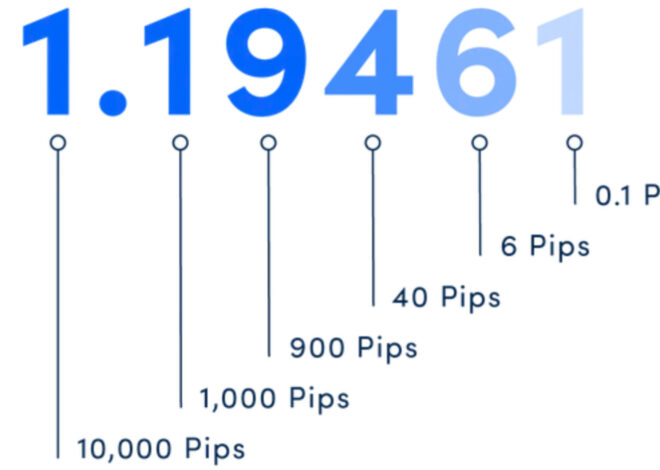
How Do I Become a Forex Trader
Forex trading, or the trading of foreign currency, has garnered immense popularity as a lucrative investment avenue. With global markets operating 24 hours a day, the potential for profit is considerable. However, before diving into the Forex pool, it’s crucial to equip yourself with the right knowledge, skills, and strategies. This article serves as a comprehensive guide for those eager to embark on their Forex trading journey.
Understanding the Basics of Forex Trading for Beginners

Before venturing into Forex trading, one must familiarize themselves with foundational concepts.
- Currency Pairs: In Forex trading, currencies are traded in pairs (e.g., EUR/USD). The first currency is the base currency, while the second is the quote currency.
- Pips: A pip, or “percentage in point,” is the smallest price move that a given exchange rate can make based on market convention.
- Leverage: This allows traders to control a larger position with a smaller amount of capital, amplifying potential gains but also increasing risks.
Example:
Assuming you buy 1 lot of EUR/USD at 1.1000 and sell it at 1.1050, you gain 50 pips. If your broker offers 100:1 leverage, your profit is significant compared to the margin you set aside.
Understanding these basics is crucial for every aspiring trader.
Essential Skills Every Aspiring Forex Trader Should Develop

Success in Forex trading requires a blend of technical and psychological skills. Some essential skills include:
- Technical Analysis: Ability to read charts and analyze price movements.
- Fundamental Analysis: Understanding economic indicators and news releases that affect currency values.
- Emotional Intelligence: Managing emotions and maintaining discipline in trading.
Skill Development Tips:
- Practice with a Demo Account: Utilize platforms that allow you to trade with virtual money.
- Read Books and Articles: Resources like “Currency Trading for Dummies” can enhance your understanding.
- Join Forex Communities: Engage with other traders on forums and social media platforms.
Choosing the Right Forex Broker: Key Considerations

Selecting a reliable Forex broker is a critical step in your trading journey. Key considerations include:
| Criteria | Importance | What to Look For |
|---|---|---|
| Regulation | Ensures safety and transparency | Look for brokers regulated by bodies like FCA or NFA. |
| Trading Platforms | Influences trading experience | Choose user-friendly platforms with robust tools. |
| Spreads and Commissions | Affects profitability | Compare fees across multiple brokers. |
| Customer Service | Essential for resolving issues | Test their support through live chat or email. |
Developing a Trading Strategy: Analysis and Planning

A well-defined trading strategy is vital for successful trading.
- Identify Your Trading Style: Decide if you are a scalper (short-term trader), day trader, swing trader, or position trader.
- Set Goals: Outline what you want to achieve, whether it’s monthly income or long-term wealth accumulation.
- Choose a Trading Strategy:
- Trend Following: Capitalize on upward or downward price trends.
- Range Trading: Identify levels where the currency pair fluctuates within a set range.
- Breakout Trading: Trade when the price breaks a defined level.
Practical Steps:
- Conduct backtesting on historical data.
- Keep a trading journal to analyze the effectiveness of your strategy.
Navigating Risks: Effective Money Management Techniques

Risk management is paramount in Forex trading. Here are some techniques to protect your capital:
- Position Sizing: Determine how much of your capital to risk on a single trade, usually recommended at 1-2%.
- Stop-Loss Orders: Use this tool to limit potential losses by automatically exiting a trade at a predefined price.
- Diversification: Spread your investments across various currency pairs to mitigate risk.
Example:
If your account balance is $10,000 and you decide to risk 1% per trade, your maximum risk for a trade would be $100.
Continuous Learning: Staying Informed in Forex Markets

The Forex market is dynamic and can change rapidly based on economic news, geopolitical events, and market sentiment. Continuous learning is essential for success.
- Stay updated with financial news through reputable sources like Bloomberg or Reuters.
- Utilize educational platforms offering webinars and tutorials.
- Follow influential traders and analysts on social media for insights.
Final Thoughts
Becoming a successful Forex trader is a journey filled with learning and growth. By understanding the basics, developing essential skills, choosing the right broker, strategizing effectively, managing risks, and committing to continuous education, you set yourself on the path to success in the dynamic world of Forex trading. While the road may be challenging, the rewards can be substantial for those willing to invest the time and effort.



The tips on choosing a Forex broker are really helpful. Regulation is super important!
Learning technical analysis is essential. I’m going to practice with a demo account.
‘Continuous learning’ is key in Forex. I need to stay updated with news daily.
Emotional intelligence in trading is something I need to work on. Thanks for highlighting that!
‘Stop-loss orders’ seem very useful! I must remember to use them to limit losses.
‘Position sizing’ was a new concept for me. I’ll definitely apply it in my trades.
This article explains the basics of Forex trading very well. I learned about currency pairs and pips.
‘Currency Trading for Dummies’ sounds like a good resource. I’ll check it out!
Great overview of different trading strategies! I want to try breakout trading next.
I appreciate the section on risk management. It’s crucial for new traders like me.